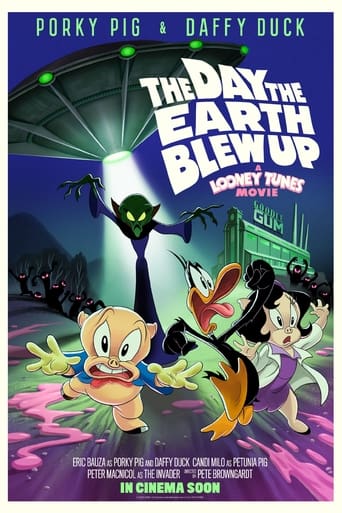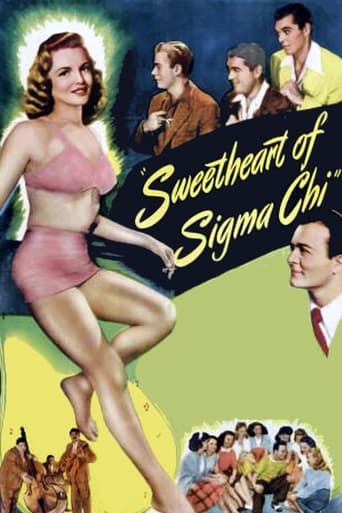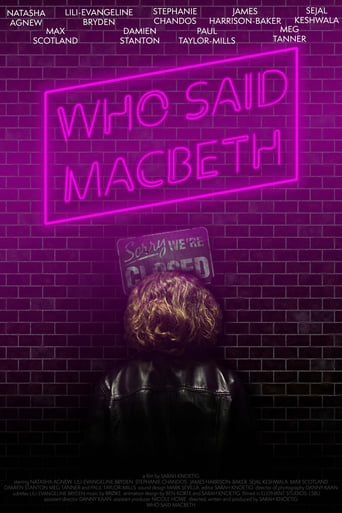The Wayward Cloud (2005)
Hsiao-Kang, now working as an adult movie actor, meets Shiang-chyi once again. Meanwhile, the city of Taipei faces a water shortage that makes the sales of watermelons skyrocket.
Watch Trailer
Free Trial Channels
Cast


Similar titles
Reviews
What makes it different from others?
Thanks for the memories!
Excellent, Without a doubt!!
Excellent and certainly provocative... If nothing else, the film is a real conversation starter.
The founder of the "new novel" and screenwriter for Last Year at Marienbad Alain Robbe-Grillet said: "A new form will always seem more or less an absence of any form at all, since it is unconsciously judged by reference to the consecrated forms." This is certainly true of the films of Tsai Ming-Liang, and The Wayward Cloud is one of his most daring attacks on traditional cinematic form yet. We follow two characters: Hsiao-kang (the same protagonist as in eight of Tsai's nine features. Acting as an "Antoine Doinel" for our modern age of isolation and loneliness) and Shiang-chyi as his would be lover. The two however, are doomed never to celebrate their love for each other fully. Our two protagonists never express themselves with words, and don't speak more than one sentence each throughout the film. Both sentences come when they see each other for the first time since Tsai's previous film What Time is it There? Tsai's work within the Contemporary Contemplative Cinema paradigm is essential, because he has elevated the process to be more than simply a rejection of the sheep-like adherence to standard narrative techniques, but also the best possible means of expression of the themes and philosophy he is interested in exploring. The events of The Wayward Cloud unfold the way they do because it's the only way they can unfold for them to have any meaning. The style is informed by the content of the film. The rejection of dialogue, the refusal to cut, the wariness of close- ups, the static "objective" camera informs our understanding of the themes. The entire film is about emptiness. The characters lives are empty, the decrepit building they live in is empty, the version of Taipei they live in is empty (even as the news story on t.v. hints at a larger population somewhere) the images they are framed in are empty, and the majority of the time they spend in the movie is empty. They are seen sleeping on park benches, laying on the floor, smoking cigarettes, walking down endless hallways, and taking long elevator rides. There are five scenes throughout the film which are not empty and all five of the scenes happen to be musical numbers. These numbers serve as a sort of internal monologue for our two protagonists, and then curiously for two minor characters who share a total of about 6 minutes of screen time and are Hsiao-kang's partners in two different porn shoots he works on. When the film shows its teeth in the disturbing final minutes, the audience is not prepared. With so much of the film revolving around the banality of existence in a lonely empty world, and at best the minor joys which come from things such as a cigarette or cooking live crabs, it is shocking for a major life event to actually take place. This allows for maximum reflexivity among the audience and also introduces a rare visceral element to the film. What once seemed cold, seems bright by comparison. The reading of the ending is something few people can agree on. The seemingly violent sexual contact is off-putting, but could be read as a joyful release for two characters who clearly belong together. However, the manner of their sexual joining is so distinctly not "correct." Their only sexual contact is through a hole in a wall, at once allowing them the connection they so desire, but reinforcing the disconnect which been present throughout the film.The bittersweet connection seems to have more bitter than sweet, bringing Hsiao-kang back to his lonely isolated contemporary world filled with empty frames and empty time. It is fitting that the final image is one of the most empty framing wise, and one of the longest feeling shots time-wise in the entire film. The Wayward Cloud is a film which both stands on it's own terms as a significant work within an important movement in the redefining of narrative cinema, and as a learning tool when it comes to understanding that redefinition. It's an important exploration of the narrative form which has held steady for much too long, and in recent years has seemed more than ever to be hitting the apex of possible regurgitations. Claims that cinema is dead are nothing new, but have been becoming louder and more vehement among film purists in recent years. They are silly. Cinema cannot be dead when films such as this exist as proof that narrative cinema has yet to be explored to its fullest potential. If we have yet to even fully explore narrative, then we certainly have quite a ways to go before cinema as a whole is used up. This film and indeed the CCC movement overall, are a beacon of hope for the medium.
they have sex with melons in Asia.okay. first, i doubted that, but after seeing the wayward cloud, i changed my mind and was finally convinced that they have sex with watermelons, with people dead or alive. no safe sex of course. the (terrifyingly ugly) leading man shoots it all into the lady's mouth after he did the dead lady. never heard of HIV? guess not.the rest of this movie is mainly boring, but also incredibly revolting. as a matter of fact, in parts it got so disgusting i couldn't take my virgin eyes off. sex with dead people! how gross is that? and what's the message behind it all? we need water, we need melons, we need to be dead to have sex? sorry, but this stinks!
Tsai is back with his alter ego, the pretty-boy punk, Lee Kang-sheng, who this time has stopped selling watches and become a small time porn actor (I guess). The girl who wanted him, Chen Shiang-chyi, is back too and this time, they get together in the end (sort of).Avantgardist filmblogger Adam Balz writes," The Wayward Cloud, a film by Tsai Ming-liang, is a profound glimpse into the sheltered world of pornography." Actually, Tsai can't really be trying to represent pornography accurately. His "pornography" shooting scenes are monotonous rabbit-style hump jobs by Lee Kang-sheng with real Japanese porn actress Sumomo Yazakura. The whole film is very impressionistic and surreal. The "world of pornography" is "represented" by nothing but lengthy shots of the boy, the girl, a cameraman and a light man, none of whom talk.Balz admiringly continues with a question that without him we might not have thought of asking: "Who else would open a movie with a lengthy shot of an empty parking ramp, only to shift to a woman clad in a nurse's uniform lying on a bed with a half-watermelon placed over her genitalia? That style of unabashed risk-taking is something we'll never find in mainstream Hollywood, not for a long time." Mainstream Hollywood will not be jealous of the accomplishment of a lengthy shot of an empty parking ramp. The lady with the watermelon is hardly a breakthrough either. Unabashed risk-taking? Tsai is simply setting a mood, or more accurately declaring that this is a Tsai film. But this beginning really might be the work of any pretentious film school student.What is arresting and way beyond film school are the lip-synced musical sequences of a chorus of women brandishing pink umbrellas and Lee Kang-sheng gyrating jauntily and gamely (the actor is nothing if not game) in a yellow raincoat, and he in a public men's room costumed as a giant penis with the women's chorus this time wearing orange cones jutting from their breasts and singing a song which can be interpreted as referring to lost erections. These sequences are a mixture of the comical and the purely bizarre that is truly jaw-dropping and might be very effective if incorporated into a satirical story, but Tsai was never made to work this way. His method is to hint and suggest. These sequences are simply interludes that liven up a depressing set of other scenes about lost people in a big apartment building in a city that's so low on water in summertime that people are requested to switch to watermelon juice. Yes, the girl is the one who met the boy when he was selling watches. In fact very early on she actually asks him, after a long mute sequence where they just stare at each other wordlessly, "Do you still sell watches?" He gives her a look as if to say, "You must be kidding!" What he's doing of course is acting in porno movies. Or he's supposed to be. As I said, his rabbit-style hump jobs are unlikely to be usable in even the most rudimentary kind of real porno movie; it's just a sketched-in way of saying, "This guy is a porn actor now." But what else is there? A final scene in which the porn actress is found by the girl in the elevator naked and seemingly passed out. Shiang-chyi drags her back to her apartment. It's a slow process, I can tell you. Eventually the porn filmmakers find her again, and decide that despite her apparently being unconscious or dead, she'll do to shoot another scene. So they drag Ms.Yazakura down to the other end of the hallway. That's a long process too. It was more fun sitting in the kitchen staring at nothing in What Time Is It There? or watching people watch a movie in Goodbye, Dragon Inn. If this film is so "audacious," why is it so often boring? The following sequence, which caused observers to walk out of the festival theater in sophisticated Berlin, and wherein the boy humps the corpse, or unconscious woman, while shot by the maniacal but wholly unsubtle filmmakers, watched by the girl through a large keyhole window right over the bed, till the boy has a big orgasm and gives it to the girl on the face, ends the movie.Balz begins, "In the first chapter of his 1979 book Seduction, French semiologist Jean Baudrillard discerned the spheres of sex in relation to pornography: "Pornography is the quadraphonics of sex. It adds a third and fourth track to the sexual act. It is the hallucination of detail that rules. Science has already habituated us to this microscopics, this excess of the real in its microscopic detail, this voyeurism of exactitude." I guess that makes this a cool movie, for him. I'm afraid I found it a tremendous disappointment. The River was pretty and haunting in its desolate urban melancholy, and What Time Is It There? is a delicate depiction of loneliness and separation that playfully alludes to Truffaut. Tsai is playing around in Wayward Cloud in another sort of way, but it's one that this time comes dangerously close to complete solipsism. Rent a real musical or a real porno film, you'll be better off. Note: the French title of this film is "The Taste of Watermelon." But that's another story
I saw this film at the Toronto International Film Festival, and it was the most memorable film of the fest--more so than other great films screening like Capote or Brokeback Mountain and for sure, your run of the mill, Hollywood films like Elizabethtown, In her Shoes, Walk the Line, etc. Wayward Cloud is a daring film about love, sex and isolation, and it's set in an almost apocolyptic time when watermelon has become the source of water, food and fetish! The film is amazingly original.Definitely, the "real time" shots which are often utilized in Taiwanese film, can try your patience, but indeed there is a "zone" for Tsai Ming Liang's films and once you get there, all the images are mesmerizing--watching a woman walk up a flight of stairs, etc. And the sex scenes (which are plenty b/c the film deals with porn) further highlights our voyeuristic "mesmerization" reflected in the style of the film.Short of writing a spoiler, please please see this film (if it is distributed in your area)...the last shot is the most disgusting and most beautiful thing ever...you'll have to see for yourself.
















